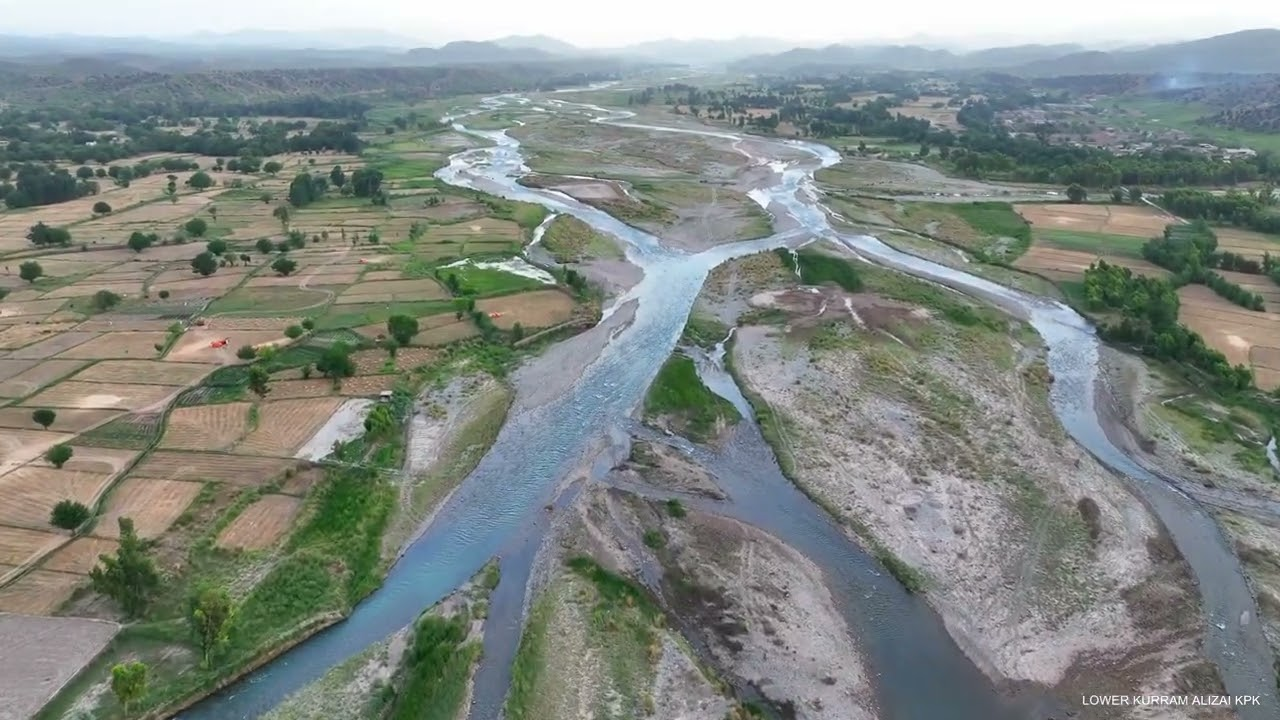The construction of six new canals on the Indus River has ignited widespread protests in Sindh, Pakistan, uniting farmers, activists, and nationalists in resistance. The federal government claims the project will address water management and distribution challenges, but the people of Sindh see it as a looming disaster.
With the Indus already struggling under the weight of climate change and overuse, critics argue that new canals will exacerbate water shortages, devastate the local ecosystem, and threaten the agricultural livelihoods of millions.
In response, the Anti Canals Action Committee, an alliance of farmers’ organizations and nationalist groups, has mobilized a robust campaign to oppose the initiative and protect the province’s lifeline.
The Threat of Water Shortages in Sindh
Sindh, often referred to as Pakistan’s agricultural backbone, depends heavily on the Indus River for its irrigation and drinking water. For decades, the province has faced challenges in securing adequate water, with issues such as upstream diversions, reduced flows, and mismanagement compounding the problem. The proposed construction of six new canals threatens to worsen these issues further.
Syed Meeran Muhammad Shah, head of the Sindh Chamber of Agriculture (SCA), has been at the forefront of the resistance, emphasizing the dire state of water resources in Sindh. He has raised concerns about diminishing water levels below the Kotri Barrage, which is critical for the downstream flow needed to sustain lakes, aquifers, and the delta.
Read : Pakistan Asks ICC to Explain India’s Refusal to Visit Pakistan for Champions Trophy
Shah warns that the continued decline in water availability will devastate the local ecosystem and compromise the region’s ability to sustain agriculture, fisheries, and drinking water supplies.
#NoMoreCanalsOnIndus | Strong protest of Sindhiani Tehreek in Karachi against robbery of Sindh water.
— Azad | آزاد (@AzadAli7786) November 17, 2024
Video Courtesy — @fehmidariaz pic.twitter.com/XQAnHK9W1b
Adding to the concerns is the fact that one of these canals, the Cholistan Canal, is reportedly being constructed without proper approvals. Shah has criticized the Central Development Working Party (CDWP) for hastily approving these projects without addressing their numerous flaws or engaging in consultations with affected communities. These actions have fueled distrust and resentment among Sindh’s farmers and activists.
Protests and Political Resistance
Protests against the canal projects have gained momentum, with rallies and demonstrations taking place across Sindh. Farmers’ organizations such as the Sindh Abadgar Board (SAB) and Sindh Abadgar Ittehad (SAI) have joined forces with nationalist groups, accusing federal institutions such as the Indus River System Authority (IRSA) and Water and Power Development Authority (WAPDA) of bias against Sindh.
Mahmood Nawaz Shah, a prominent leader of the SAB, has highlighted international disapproval of such projects, citing the suspension of funding by organizations like the Asian Development Bank for the Jalalpur Canal due to similar opposition. This example underscores the broader implications of mismanagement in water infrastructure development.

Meanwhile, Sindh’s nationalist leaders, including Ayaz Latif Palijo, president of the Qaumi Awami Tehreek, have intensified their efforts to draw attention to the plight of the province. Speaking at a rally in Hyderabad, Palijo questioned the absence of Sindh’s elected representatives in advocating for the province’s rights. He criticized the federal government’s approach, describing it as exploitative and detrimental to Sindh’s interests.
The Anti Canals Action Committee has also announced a series of protests starting November 23, with plans to continue until December 11. These demonstrations aim to amplify local voices and build pressure on the federal government to reconsider its plans.
The Indus River: Sindh’s Lifeline at Risk
The Indus River holds immense cultural, economic, and ecological significance for Sindh. Stretching over 3,000 kilometers, the river is a vital source of irrigation for the province’s agricultural sector, which produces wheat, rice, sugarcane, and cotton. The Indus Delta, located at the river’s southern end, is a unique ecosystem that supports biodiversity and livelihoods for coastal communities.
However, the river’s flow has diminished significantly over the years due to upstream diversions, reduced rainfall, and climate change. This has led to alarming consequences, including the intrusion of seawater into the delta, the drying up of lakes, and the depletion of underground aquifers. Sindh’s farmers fear that new canals will divert even more water upstream, leaving little to sustain the region’s agricultural and ecological systems.

In addition to environmental concerns, the proposed canals pose a financial burden. Critics argue that the federal government has prioritized short-term gains over long-term sustainability, investing in projects that may ultimately prove detrimental to both Sindh and the broader country. Farmers’ leaders have vowed to engage with international financiers to discourage support for the canal initiatives, further escalating the opposition.
A Call for Unity and Sustainable Water Management
The resistance to the canal projects underscores a larger issue of equitable water distribution and management in Pakistan. Sindh’s protests highlight the need for a collaborative approach that considers the voices of all stakeholders, particularly those who depend directly on the Indus River.
Farmers and activists are urging the government to prioritize alternative solutions, such as modernizing existing water infrastructure, addressing inefficiencies in irrigation, and promoting water conservation. They argue that these measures would be more sustainable and cost-effective in the long run than constructing new canals.
The Sindh government has assured its people that it will resist the projects in forums like the Council of Common Interests (CCI). However, the success of this resistance depends on sustained public pressure and effective advocacy at the national and international levels.
The proposed construction of six new canals on the Indus River has brought Sindh’s water crisis into sharp focus, galvanizing a united front of farmers, activists, and nationalists.
While the federal government argues that these projects are necessary for development, the people of Sindh see them as a threat to their survival. As protests continue and opposition intensifies, the debate over water rights and sustainable management remains a pressing issue for Pakistan’s future.

